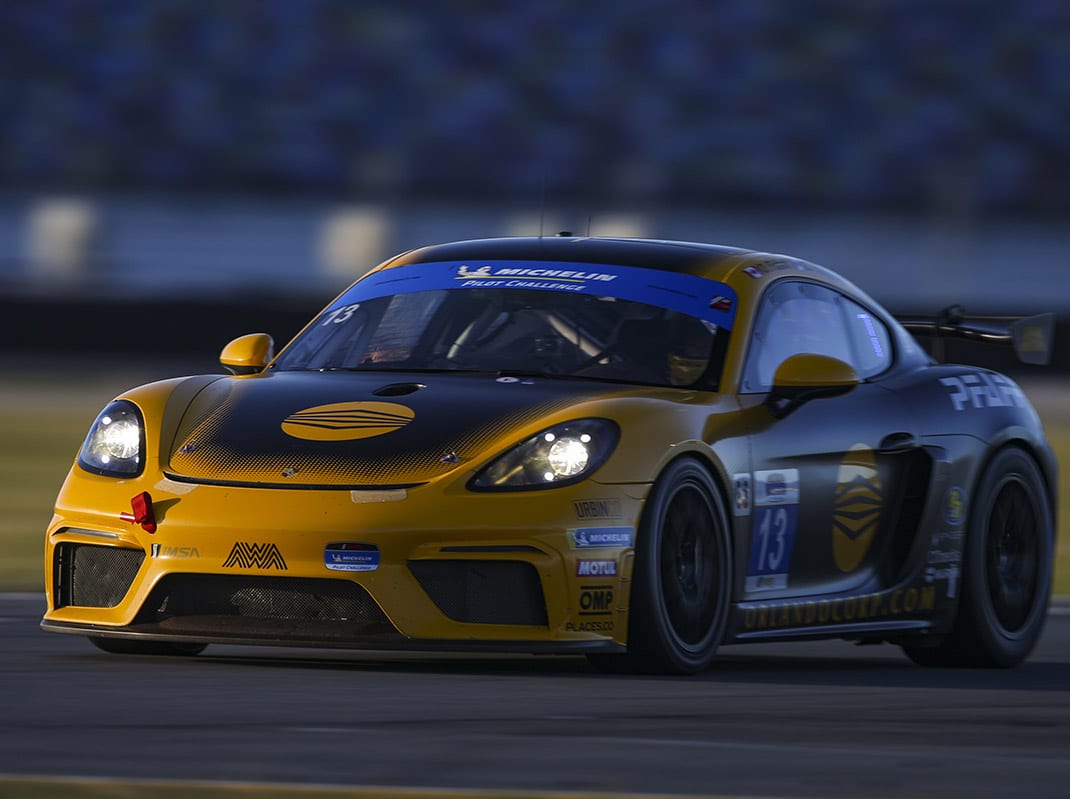DAYTONA BEACH, Fla. – On the surface, the new Porsche 718 Cayman GT4 Clubsport in the IMSA Michelin Pilot Challenge seems like any other race car.
A deeper dive, however, proves otherwise. The new generation GT4 Clubsport is the first race car to use organic materials in its production, building certain parts of the car with natural fiber materials as opposed to previously used synthetics.
The concept – and implementation – could be just the start of changes for the racing industry when it comes to sustainability, and Porsche is happy to pave the way.
“Porsche is always trying to be a leader in being green and this was another direction we could go with our use of materials and cars,” said Kyle Millikin, the GT4 Clubsport Technical Support Specialist at Porsche Motorsport North America. “You’re starting to see it on the OEM side as well, but it’s definitely a first in motorsports.”
Unveiled the first week of January at the Roar Before the Rolex 24 At Daytona, the new GT4 Clubsport features doors made of natural plant fibers – from flax or hemp plants, for example – as well as the fixed rear wing.
Millikin described how the benefits of using agricultural byproducts in the car extends far beyond the racetrack.
“It’s an exercise in sustainable use of raw materials where we were using synthetic composites before with certain materials,” said Millikin. “Now we’re using renewable plant-based composites. The production of these composites is a lot greener, has lower carbon emissions and it still has the same characteristics as the carbon fiber we’ve been using in the past. But on the greener side, it’s a shorter degradation lifetime with these natural fibers.”
How Porsche acquires these fibers also is changing.
Up until December 2018, commercial hemp production was illegal in the United States, so the materials primarily came from Europe. With the signing of a farm bill in late December legalizing hemp production, Porsche customer teams can now potentially look closer to home for repairs of these new GT4 Clubsport race components.
“I think you’ll start to see this more and more from other manufacturers,” Millikin said. “They’re already using it on the road car side in certain areas, but I think it’s going to expand more into other parts of the cars versus just body panels right now.”
Eight of the new cars were delivered to Pilot Challenge teams at the Roar, with a pair finishing in the top 10 at the series’ four-hour opener on Jan. 25 at Daytona International Speedway. Millikin explained how the teams’ reaction to the new car has been largely positive, frankly because there wasn’t much of a change.
“I think it’s been well received for the cost of production being lower, that’ll pass on to the customers,” said Millikin. “It has the same characteristics that you’re used to with carbon fiber and it can be repaired the same way as carbon fiber. It’s not a big transition for the teams to get used to it, but I think it’s been pretty well accepted.”
The GT4 Clubsport will tackle one of the toughest challenges of the year at the infamously bumpy Sebring Int’l Raceway next weekend.
